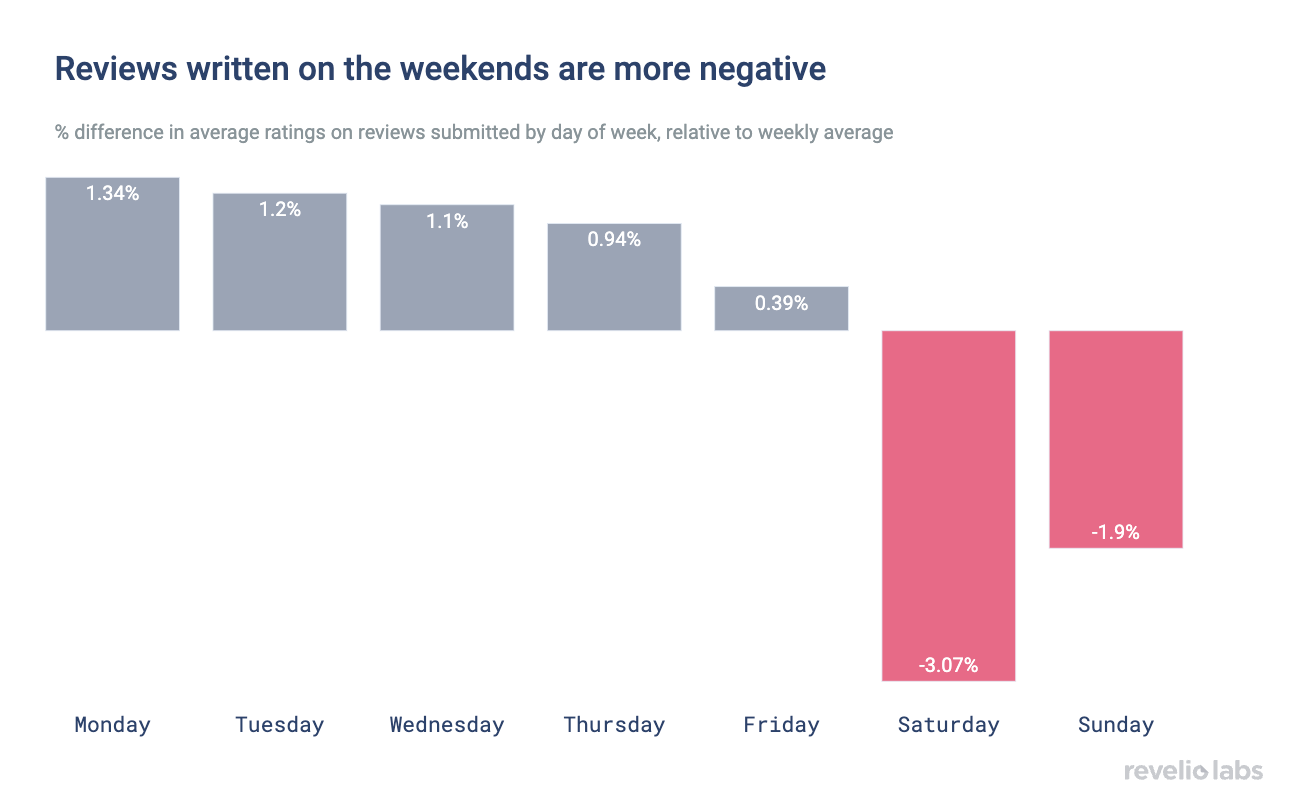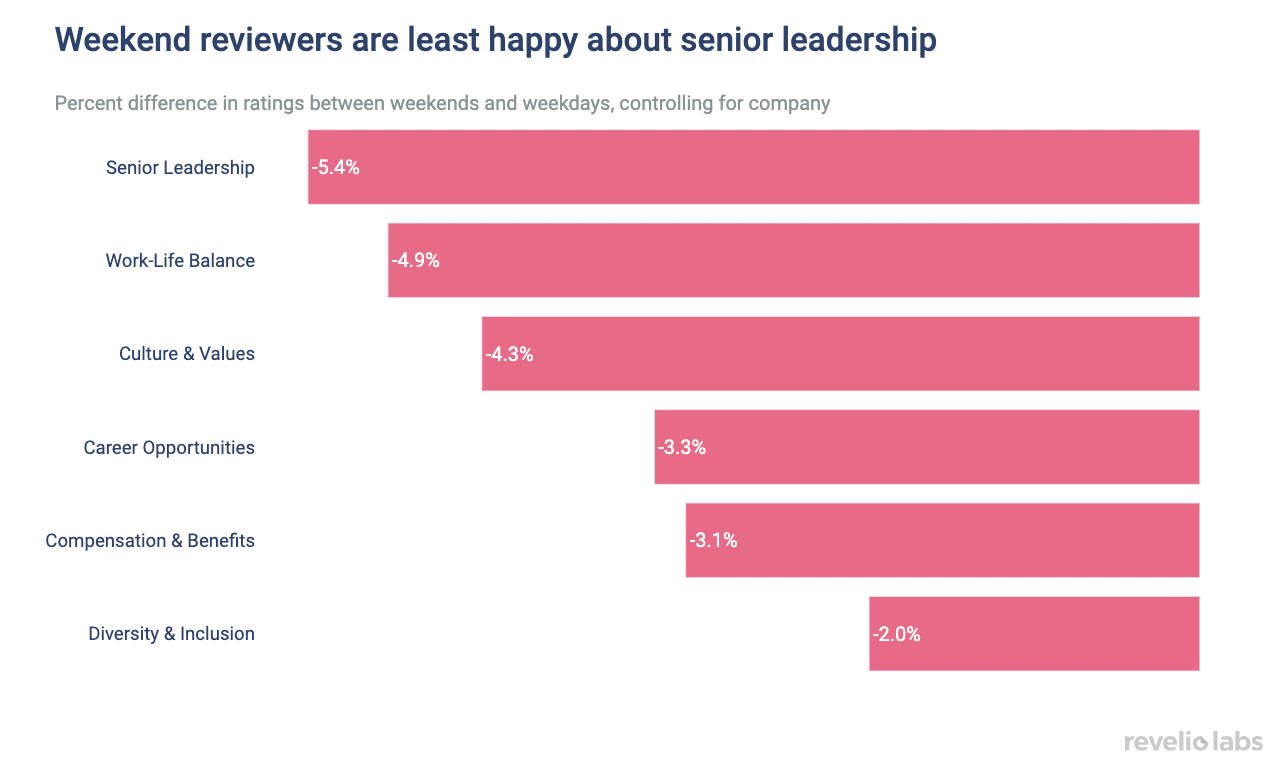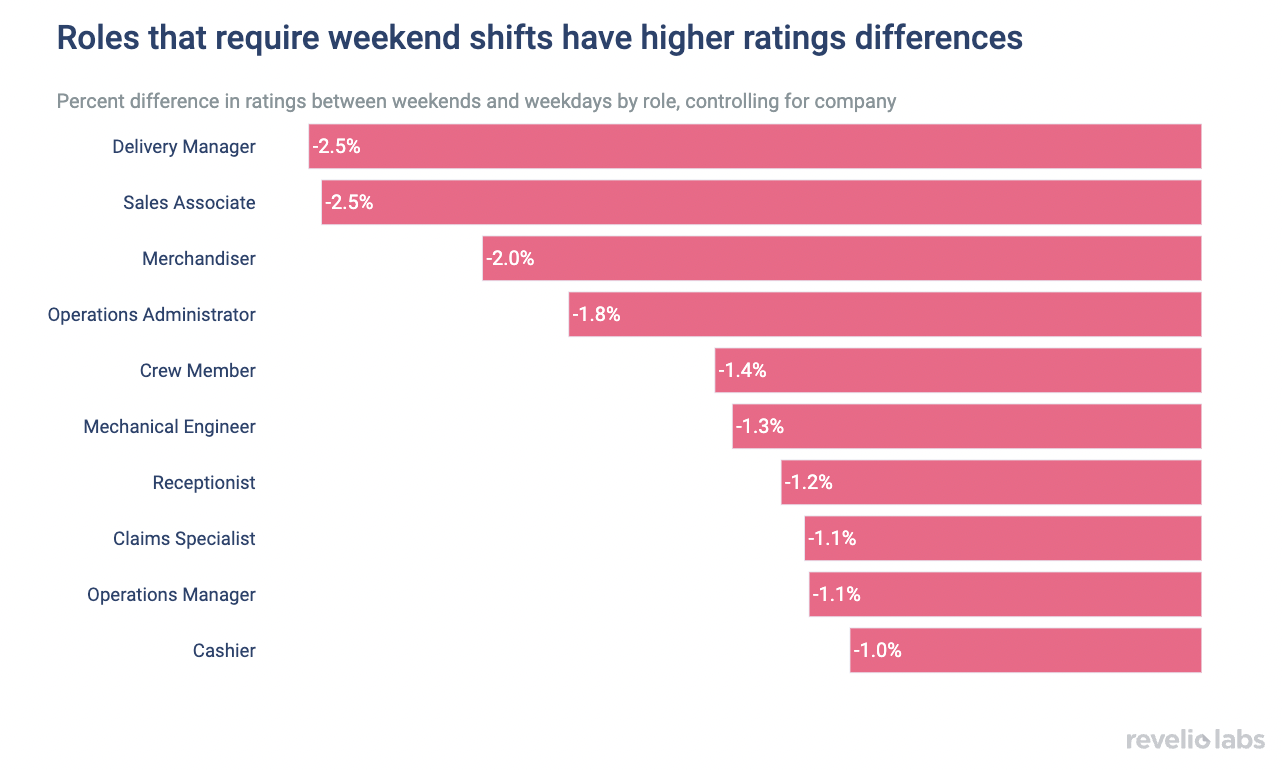The Hidden Costs of Weekend Shifts
Employee sentiment plummets on these days of the week

Employees leave more negative reviews of their employers on weekends compared to weekdays, with reviews left on Saturdays being the most negative compared to any other day of the week.
Reviews left on the weekends are particularly critical of topics concerning senior leadership, work-life balance, and culture & values.
Employees in transportation and retail roles–especially roles that may be more likely to work on weekends–are most unhappy on the weekends compared to weekdays.
Employee happiness plays an important role in the success of a company. Happy employees contribute to increased retention and lower turnover, saving companies time and money spent on recruiting. A good reputation for employee satisfaction also helps attract the best talent. Additionally, happy employees tend to be more engaged and productive in their work, leading to higher efficiency and better performance.
Employee happiness can depend on a number of factors, including work shift scheduling and perceptions of work-life balance. Employees who work weekends or odd hours may feel differently about their employers than those who work on the weekdays. In this newsletter, we use Revelio Labs’ HR data to explore the relationship between employee sentiment and the days of the week.
Looking at employee reviews since 2018, we find that although fewer reviews are left on weekends, the company ratings in these reviews are more negative compared to weekdays. For example, ratings left on Saturdays are 3% lower than the average overall rating for that week. This difference in sentiment could be due to selection: Only around 15% of all employee reviews are left on Saturday or Sunday, and those who take the time to leave reviews on the weekends may be particularly unhappy with their jobs.


When employees leave reviews over the weekend, what are they most unhappy with? We find that the differences in ratings between the weekends and weekdays are largest for senior leadership, work-life balance, and culture and values. This trend is understandable, given that these ratings are left by employees who are still thinking about work and may be particularly dissatisfied with their bosses over the weekend.


Sign up for our newsletter
Our weekly data driven newsletter provides in-depth analysis of workforce trends and news, delivered straight to your inbox!
Indeed, when we take a closer look at which job categories have the largest difference in ratings between the weekdays and weekends, we find that employees in transportation and retail-related roles are the least happy on weekends compared to weekdays. Perhaps unsurprisingly, employees in these jobs also tend to work on the weekends. Considering that reviews left on weekends are particularly critical of work-life balance, these employees may have been motivated to leave unfavorable reviews after working one difficult weekend shift too many.



